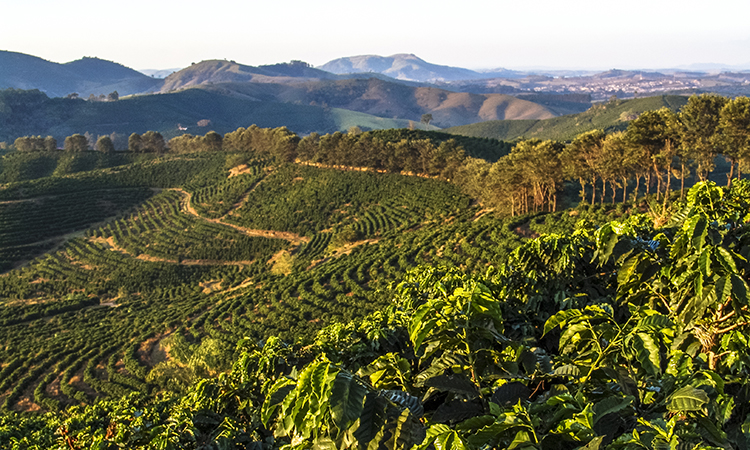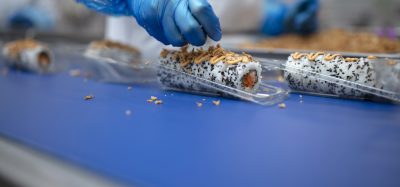Brazil’s biodiversity and technology focus will drive trade with the UK
- Like
- Digg
- Del
- Tumblr
- VKontakte
- Buffer
- Love This
- Odnoklassniki
- Meneame
- Blogger
- Amazon
- Yahoo Mail
- Gmail
- AOL
- Newsvine
- HackerNews
- Evernote
- MySpace
- Mail.ru
- Viadeo
- Line
- Comments
- Yummly
- SMS
- Viber
- Telegram
- Subscribe
- Skype
- Facebook Messenger
- Kakao
- LiveJournal
- Yammer
- Edgar
- Fintel
- Mix
- Instapaper
- Copy Link
Posted: 26 January 2021 | Marcos Fava Neves | No comments yet
Global food expert Marcos Fava Neves explains why Brazil is well-placed to become a key trading partner with the UK when it comes to providing sustainable and competitively priced food.


Aside from producing stunning vistas, Brazil's use of innovative agricultural methods is making it one of the top food producers too
Today Brazil accounts for eight percent of world exports in agricultural products. Its position as a leading global food producer has come through its focus on and achievements in biodiversity, technology and digitalisation. These efforts have enabled it to continue to meet the world’s demand for quality food, despite one of the most challenging years in recent human history.
As the UK leaves the EU after 47 years of membership, Brazil is ready to build and develop strong trade ties with the former EU nation. A closer trading relationship will offer significant benefits to both, not least of which for the UK is an increased choice in agricultural and food products, as well as produce that will help keep consumer food prices low.
Multilateral trade agreements, complex as they are to negotiate, can lead to positive outcomes for all parties. The progress made in recent months on the EU-Mercosur Free Trade Agreement, which currently awaits ratification, provides a good example of the progress that Brazil and the UK could make in negotiating a similarly productive bilateral agreement.
But time waits for no one; hence the reason that Brazil continues to develop and apply technological innovation to enhance the competitive appeal of its agricultural produce. According to the United Nations Food and Agriculture Organization (FAO) and The Organisation for Economic Cooperation and Development (OECD), Brazil’s food production is on course to outgrow the global average over the next ten years. The Brazilian Trade and Investment Promotion Agency (Apex-Brasil) has been working hard to build and maintain bridges that encourage the free and fluid movement of produce between Brazil and its export markets.
Diplomacy and trade agreements are only one part of this bilateral trade, however, and I believe that continuing to focus on developing and applying great innovations in biodiversity, technology and digitalisation will significantly help to ensure that Brazil remains an attractive trading partner for agricultural produce for the UK and indeed all European markets, whether within or outside of the EU.
Drones are being used on Brazil’s farms to drive down production costs and help keep Brazilian food competitive.
Harnessing technology
The Brazilian agricultural sector is fast progressing into a new era of digitalisation. Recent years have seen tremendous focus on developing square-metre management in farms. This is a unique approach to precision farming that harnesses digital tools such as drones and GPS technology, plus the power of data. These are key in reducing inputs and carefully managing resources like water. With fewer inputs and greater efficiencies, these digital farming techniques help drive down production costs, keeping Brazilian food and agriculture prices competitive and even more sustainable.
Such high-tech digital solutions can often be expensive. In many agricultural productive economies this can mean that they are accessible only to wealthier producers. But the vast majority of Brazilian agricultural producers are smallholder family farms that ordinarily wouldn’t have access to such expensive solutions. Again, Brazil has taken a unique approach to overcome this problem: smallholder farmers can enjoy the purchasing power and economies of scale of its sophisticated network of agricultural cooperatives, which democratises access to technology solutions to the benefit of all. Approximately 50 percent of all Brazilian production goes through cooperatives.
Embrapa, Brazil’s agricultural research agency, has been pivotal in also driving this democratisation of access to technological solutions by developing effective digital tools that use computer simulation and artificial intelligence, for example, to predict yields and the occurrence of diseases in different crops.
Just one of the dozens of practical apps developed in recent years to support growers is Arbopasto (Pasture Tree), which provides detailed information on tree planting techniques and forestry management for the livestock sector.
There is little doubt that the ongoing digitalisation and technological advancement of Brazil’s agricultural sector will improve societal outcomes, both at home and abroad, leading to competitive prices and enhanced sustainability. Indeed, what sets Brazil apart from other markets is its emphasis on biodiversity and sustainability – a part of its core focus on the three Ps of people, planet and profit.
In Brazil, we are keenly aware that we cannot advance any one of those three Ps without focusing equally on the others. Our trading partners and consumers in Europe rightly demand that the food on their table is produced to the highest environmental and societal standards. Through our keen focus on innovation in biodiversity, technology and digitalisation, Brazilian farmers are working hard to ensure that we continue to meet those exacting demands in a sustainable way. Brazil is well positioned to be the world’s sustainable food supplier.
About the author
Marcos Fava Neves is an international expert on global food, agribusiness and bioenergy strategies, and a part-time professor of planning and strategy at the School of Business (FEARP) of the University of São Paulo (USP) and FGV Business School, both in Brazil. Marcos graduated as an agronomic engineer from ESALQ/University of São Paulo – Piracicaba in 1991. He has specialised in strategic planning processes for companies and food chains. He is also a board member of more than ten public and private organisations.
Related topics
Environment, Research & development, Supply chain, Sustainability, Technology & Innovation, Trade & Economy
Related organisations
Brazilian Trade and Investment Promotion Agency (Apex-Brasil), Embrapa, European Union, Food and Agricultural Organization of the United Nations (FAO), The Organisation for Economic Cooperation and Development (OECD)









